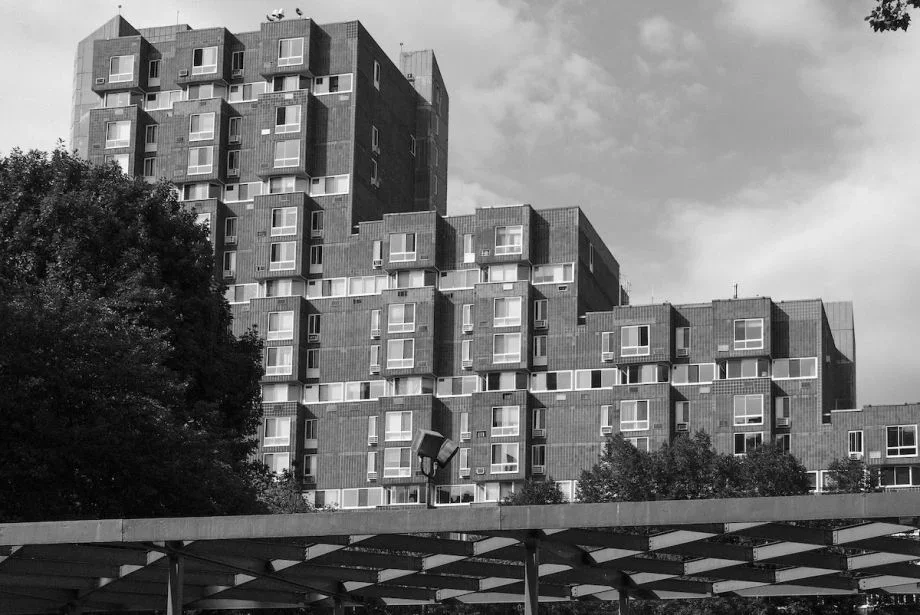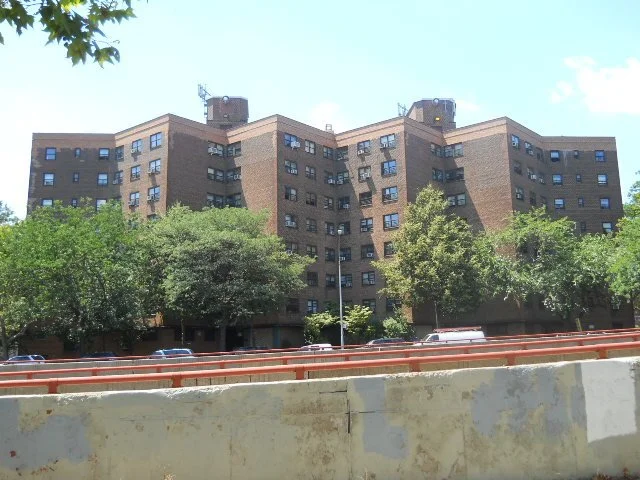
Building a city we can ALL afford
District 74 | Kips Bay, Gramercy, Murray Hill, Tudor City, Stuyvesant Town, and Alphabet City
Vote Foley February 3rd, 2026
|
Vote Foley February 3rd, 2026 |
-
MTA Fares
NYC residents deserve to pay less than tourists and out-of-towners. We shouldn’t be charged the same as people from New Jersey or Connecticut.
By reallocating surplus funds, we can lower fares for locals immediately—putting money back in our pockets.Congestion Pricing
Stop taxing locals just for living here. This needs to be reduced for locals.
Imagine being charged every time you enter or exit your own driveway. That’s exactly how unfair it is right now.Taxes & Waste
NYC isn’t suffering from a lack of revenue—it’s drowning in wasteful spending.
It’s time to cut the unnecessary expenses and stop burdening working-class families.This isn’t rocket science—it's basic economics for the people who call this city home.
-
Homeownership Can Ease the Rental Crisis … If We Do It Right
New York’s housing crisis isn’t just about high rents, it’s about limited pathways to ownership. We talk a lot about affordability, but not enough about how to move working and middle-income families from renting to owning.
Here’s the truth:
When middle-income families become homeowners, they leave the rental market. That reduces demand and helps stabilize rents for everyone else. It’s one of the smartest, most sustainable ways to ease the housing crisis — without relying solely on rent caps.As your Councilmember, I’ll push for targeted, practical policies that open the door to homeownership:
Tax incentives for buildings that allow FHA financing and low down payment options for first-time buyers.
Streamlined approval and city-backed incentives for co-ops and condos to opt in to FHA eligibility.
Down payment assistance programs in partnership with city-backed lenders, credit unions, and nonprofits — especially for long-time residents, city workers, teachers, and first-generation buyers.
This isn’t radical policy, it’s common-sense investment. Instead of rewarding vacancy and speculation, let’s reward stability and long-term community building.
Fair Rent Policies: Balance for Tenants, Owners & Local Businesses
Rent policy in New York must protect tenants, support small businesses, and create responsible incentives for property owners. Right now, all sides are losing, and our neighborhoods are paying the price.
Here’s how we fix it:
Vacancy taxes on warehoused rent-regulated apartments and commercial spaces, if it’s sitting empty without active leasing efforts, the city deserves a share of that loss.
Responsible destabilization — allow property owners to deregulate only if they meet strict criteria:
5-10+ years of continuous ownership, opinion to discussing.
Proven tenant stability
No outstanding violations
Documented capital improvements for increases.
Past Capital improvements and rent increases verification towards destabilization.
Fees to increase rent or destabilize, creation needs to also benefit tenants.
Leasing enforcement — if landlords keep storefronts or apartments vacant, they must lower asking rents or face fines. This city needs movement, not gridlock.
And we must give small businesses a real shot, Jane Jacobs vs Robert Moses.
Let’s give entrepreneurs, creatives, and community-serving businesses access to reasonable rents, not impossible ones. We can educate wealthy retail property owners about the long-term value of active, lively storefronts, not just for their bottom line, but for the soul of the city.
Let’s fill our commercial corridors with culture, art, community, and vibrancy, not just banks and chain stores. A thriving NYC means opportunity on every block, not “For Lease” signs gathering dust.
Smart Development: Build What We Actually Need
Too many so-called "affordable" units are priced beyond the reach of everyday New Yorkers. That’s not working, for residents or developers.
I’ll advocate for a development approach that reflects reality:
Prioritize deeply affordable studios and one-bedrooms, especially in neighborhoods where single adults and seniors are struggling to stay.
Reform AMI benchmarks so affordability is based on local incomes — not inflated regional figures.
Give developers flexibility to build units that pencil out and serve a real need — while holding them accountable for transparency and community input.
Encourage collaboration with local landlords and small property owners, not just large-scale developers.
Let’s stop pretending we’re solving the housing crisis with units no one can afford, and start building for who actually lives here.
-
Align School Hours with Work Hours
We’re expected to work 9 to 5, yet schools run only until 2:40pm.The money is there to extend school support until at least 5:30pm, so parents aren’t forced to pay out of pocket for extra care.
It’s basic economics that supports both children and working families.
Strive for Excellence
New York is home to some of the best schools in the country—let’s ensure every public school reaches that potential:Invest in improvements from elementary through high school so our children have every opportunity to succeed.
-
Summary :
Support and reform policing through evidence-based strategies: invest in advanced education and specialized training, establish co-responder and community-focused units, leverage technology responsibly, adopt a guardian mindset, and reallocate resources to integrate public health approaches. These measures aim to enhance public safety, build community trust, and ensure appropriate responses to complex social challenges.
1. Enhance Education and Training
Higher Education: Officers with advanced education levels tend to exhibit improved problem-solving abilities, better communication skills, and a greater propensity for non-coercive conflict resolution. This correlates with increased public trust and reduced incidents of force. shura.shu.ac.uk
Mental Health Crisis Training: Implementing programs like Crisis Intervention Team (CIT) training can bolster officers' confidence and self-perceived capability in handling mental health crises. However, studies indicate that while CIT enhances officer attitudes and knowledge, its direct impact on reducing use-of-force incidents remains inconclusive. jaapl.org
2. Develop Specialized Units
Mental Health Co-Responder Teams: Pairing officers with mental health professionals during crisis calls has shown promise in improving de-escalation outcomes and reducing unnecessary arrests. Preliminary evaluations suggest these teams can lead to better consumer experiences and more appropriate service referrals.
Community Support Divisions: Establishing units focused on community engagement, youth outreach, and restorative justice can address underlying social issues, fostering stronger community relations and potentially reducing crime rates.
3. Invest in Technology and Data Systems
Advanced Data Analytics: Utilizing data-driven approaches, such as predictive analytics and real-time crime mapping, can aid in resource allocation and proactive policing strategies. Effective implementation requires careful planning and community involvement to ensure transparency and accountability.
Body-Worn Cameras and Surveillance Tools: While these technologies can enhance accountability, their effectiveness depends on proper usage policies, training, and community trust.
4. Implement Evidence-Based Policies
Guardian Mindset Adoption: Shifting from a "warrior" to a "guardian" approach emphasizes protection and service over aggression. This cultural change within departments can lead to improved community interactions and reduced confrontations. pmc.ncbi.nlm.nih.gov
Integrated Data Systems: Developing shared databases between law enforcement and mental health services can facilitate better responses to individuals in crisis, ensuring timely and appropriate interventions.
5. Reallocate Resources for Holistic Public Safety
Community-Based Alternatives: Redirecting certain responsibilities, especially those related to mental health and social services, to specialized agencies can alleviate the burden on police and provide more suitable care for individuals in need.
Public Health Integration: Incorporating public health perspectives into policing strategies can address systemic issues contributing to crime, such as poverty, addiction, and mental illness.
-
Support First Responders
Our police, firefighters, EMTs, and teachers are the backbone of NYC.
We must back the people who keep our city running.24/7 Subway Security
Every station, every platform—riders should never feel unsafe, day or night.Enhance security measures across the system to provide constant, reliable protection.
Clean Up the Streets
We need real solutions for homelessness:Expand access to clinics, recovery programs, and supportive services.
It’s not about being cold-hearted—it’s about being honest and getting people the help they truly need.
-
Cut the Red Tape
It shouldn’t take a lawyer and a year to open a small business in NYC.Simplify regulations to allow entrepreneurs to hit the ground running.
Lower Taxes for Locals
We routinely hand out tax breaks to billion-dollar companies—why not our local businesses?Adjust policies so small businesses, which create jobs and build communities, receive the support they deserve.
Fair Play Against Corporate Giants
When corporate chains squeeze out mom-and-pop shops, everyone loses.As a small business owner, my biggest expense isn’t payroll—it’s rent. Let’s level the playing field so that landlords, businesses, and our community all win together.
These programs can be implemented with minimal capital—they just require the will to act.
-
Mental Health Access
Every NYC neighborhood deserves free or low-cost mental health services.No one should have to suffer in silence.
Support Fitness & Prevention
Invest in keeping people healthy rather than just treating sickness after it occurs.My background in fitness and wellness has shown me how transformational health can be for individuals, families, and communities.
Streamline Healthcare Access
Working families shouldn’t need insider connections to get basic healthcare.We need a system that’s efficient, transparent, and truly accessible for all.
It’s simple, let’s make the city safe and affordable for all New Yorkers

Eliminate income taxes for workers making less than $140K
Eliminating income tax for the working class will put more money back into your pockets to make New York livable. Let’s not waste taxpayer money on bureaucracy and bring more transparency to Albany.

Increasing affordable housing for the working class
Enact a Mitchell-Lama 2.0 program, building off a successful bipartisan program to increase affordable housing. Accelerate conversions for new housing and provide no-down payment mortgages so renters can become owners.

Expanding after-school programs to support students and working families
Increasing after-school programs to end at 5:30 PM allows for students to engage in educational activities while allowing parents to spend less on childcare. This makes sense for working parents who need to finish their jobs as well as take care of their children.

Keeping our streets safe for all New Yorkers
The safety of our families and residents is my top priority. I will amend NY State sanitation laws to evaluate the homeless to help them get the compassionate care they deserve. We need police and trained professionals in our streets keeping our neighborhoods safe.

Bringing reform to NYCHA complexes
Implementing a program for workers who owe back taxes and fees to instead complete repairs for NYCHA complexes. Additionally, providing apprenticeship options for NYCHA residents eager to learn trade skills. This would provide necessary upgrades for buildings and additional jobs, helping our working class.
Who Am I?
I grew up in Ashley, Pennsylvania, a small mining town. I came to New York with a dream and $400, built multiple businesses from the ground up and achieved degrees from NYU and Columbia. I also have taught real estate strategy at Fordham University. I understand the struggles of the working class and am not part of the established elite. I am living proof of what grit and determination can yield, and I’m ready to serve our community.
While my opponents come from politics or privilege, I come from the ground up. I'm not a billionaire. I'm not a career politician. I’m a working father trying to make an honest living, and I want to support my fellow New Yorkers who do the same.
I took a risk and I bet on myself by building my own American Dream:
Founded Pedal House, Pure House, House of Heroes, and PowerPass with my wife.
Most importantly, I’m a husband to an incredible wife, a father to two amazing kids, and a lifelong fighter for New York’s actual working families.
Launched JWF Capital, helping developers, operators, and family offices navigate both sides of real estate — as users and owners.
“I’m a father of two children and I’m running for the next generation. The direction of our city is uncertain, prices are too high, and everyday New Yorkers can’t build wealth for themselves. This needs to change. Affordability and safety are the most important issues to me. I want to put more money back into people’s pockets and support programs to keep our streets safe.”
Let’s make New York work for everyone and not just the elites
In the News
Athletech News – CEO Corner Interview
“I built Punch Pedal House to serve real people, not algorithms. We built community — not just a fitness brand.”
Read the full article →
Social Life Magazine – The Transformation Fit
“How Joey Foley is changing the boutique fitness scene in New York.”
Read the full article →
Modern Luxury – Culture Meets Cardio
“Joey Foley’s approach blends grit, grace, and relentless hustle.”
Read the full article →
Authority Magazine – 5 Things You Need to Create a Highly Successful Startup
“We believed in the power of people and the culture we built. That’s what carried us through.”
Read the full article →




